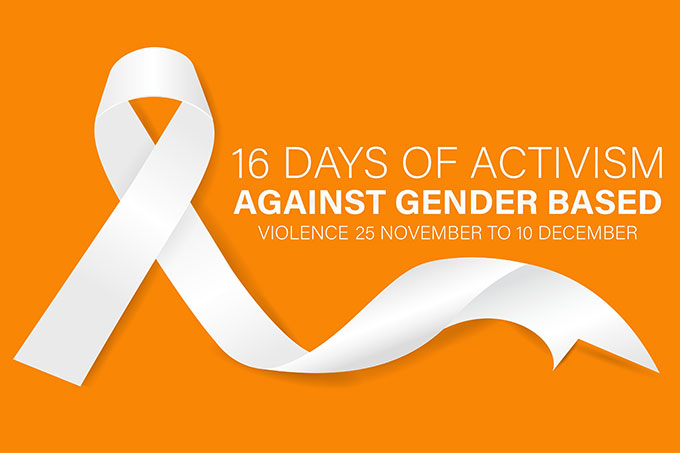Dr Sofia Graca explains how it is all our responsibility to raise awareness and educate ourselves if we are to take steps towards eliminating gender-based violence.
Since 1991, the period between 25 November and 10 December has marked the 16 Days of Activism Against Gender-Based Violence. A global call for action to end violence against women, under the United Nations’ (UN) UNITE to End Violence against Women initiative, usually focusing on a particular form of abuse.
This year’s focus is on digital violence against women and girls and the discussion could not be timelier. Concerns with online misogyny, the role of social media influencers fuelling such violence, and of social media platforms amplifying online abuse often frame the background of such discussions.
Women and girls experience strikingly higher levels of domestic and sexual offences compared to men, and this victimisation extends online, with reportedly one in three women having experienced abuse online in the UK. Digital violence extends to women in journalism, leadership, business, and politics, helping to silence an already underrepresented part of the population in these fields.
The situation doesn’t seem to be improving, and indeed, UN UNITE describes it as one of the fastest-growing forms of abuse. Not only is this abuse potentially further reaching, but violence online can also result in violence in the real world.
Digital abuse can take various forms, such as cyberstalking, non-consensual sharing of intimate images and online harassment, or be facilitated by digital instruments such as AI-generated deepfakes. It is difficult to address, and the perpetrators often act with impunity. The Online Safety Act 2023 tries to address this by criminalising behaviour, and requesting online providers and social media platforms to take swift and proactive action. Ofcom published this year the codes of practice setting the expectations that these should abide by, with further consultation underway, and there are potentially large fines for those who do not comply.
Considering the borderless and often faceless nature of digital abuse, it remains to be seen whether these localised initiatives, even against the backdrop of the UN’s resolution 79/152 on the intensification of efforts to prevent and eliminate all forms of violence against women and girls: the digital environment will have meaningful impact on women’s experiences of digital abuse.
The consequences of such abuse are dire and wide-reaching. They are bad for individuals (including men), families, the economy, the environment and the world. Women’s lives are deeply impacted by this, especially those experiencing forms intersectionality, those who are disabled and LGBTQ+. Let’s not forget about age, with younger victims at a higher risk of abuse (including digital abuse) than their older counterparts. Girls and young women have been found to be more vulnerable to forms of exploitation, such as online sexual exploitation, online harassment, or threats of sexual harassment, for example. If this isn’t enough to make us reflect and be concerned about our society, the safety of those around us: our friends, our families, our neighbours, our colleagues, our students, then what is?
What can we do? Being compassionate but firm in saying no to gender-based violence is a start. Reflecting on our behaviour and that of others around us, raising awareness and educating ourselves are ways to facilitate this. Online or off, we are all part of the community and, therefore, the discussion.
Hopefully, this year’s 16 Days of Activism will take us one step further towards eliminating gender-based violence.
Dr Sofia Graca is Principal Lecturer in the School of Business, Law and Policing and co-chair of the CCCU Domestic Abuse Hub.
 Expert comment
Expert comment Jeanette Earl
Jeanette Earl 631
631


